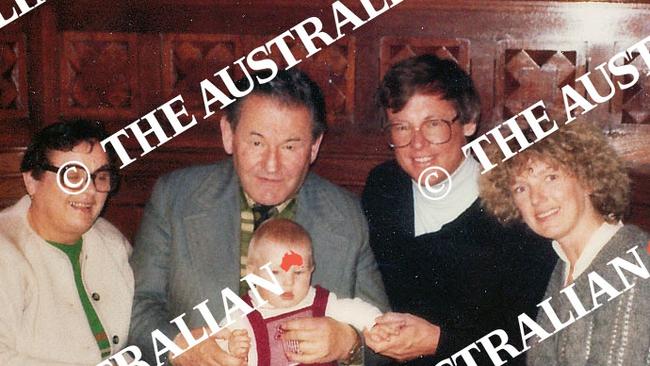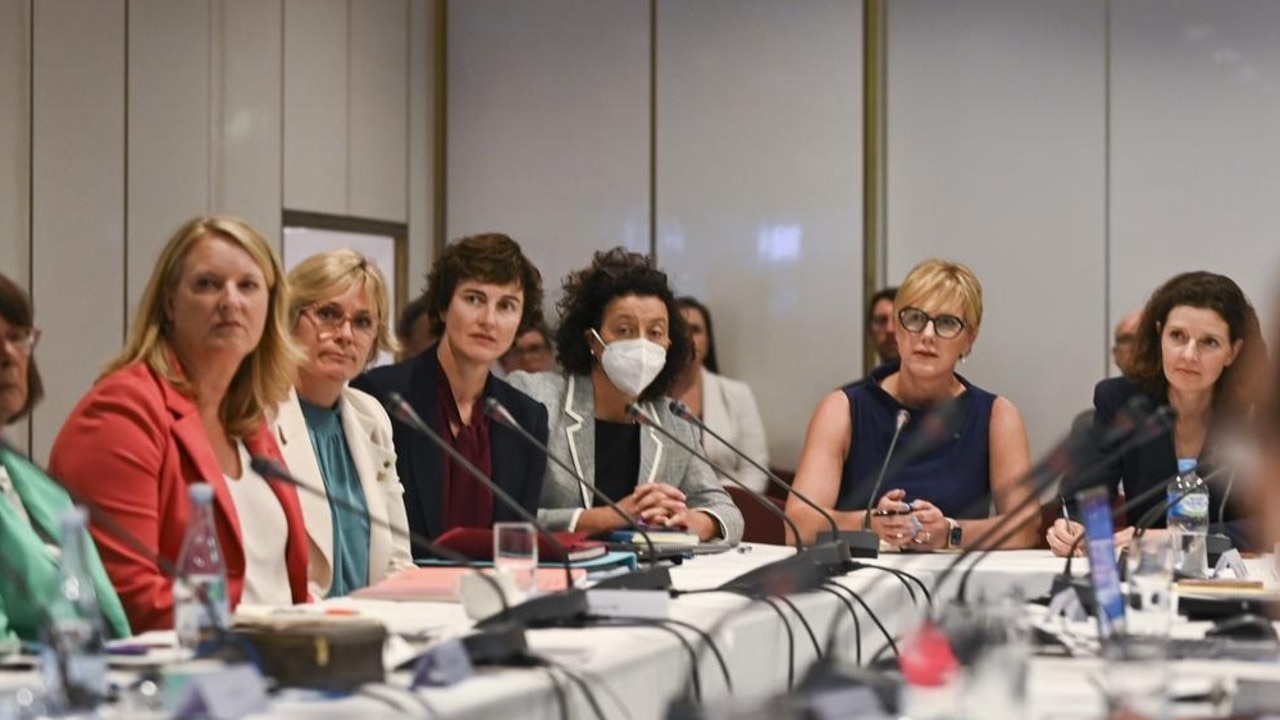Holocaust survivor dragged through new hell: stepson
As with her debut, the ‘facts’ on which Heather Morris has based her latest work are contested.

Bestselling Australian author Heather Morris has been accused of distorting the memory of a Holocaust survivor by producing a book “based on a heartbreaking true story” that misconstrues her true experiences.
The closest known relative of Cecilia (Cilka) Klein, the woman at the centre of Morris’s newest work, Cilka’s Journey, claims his stepmother, who died in 2004, would have been devastated at being cast as “a drug pusher and a sex slave” in the book.
“This woman suffered so much in her life,” George Kovach, a retired theatre producer, tells The Weekend Australian “She was in the Holocaust, she was in Auschwitz, she spent nine years in a gulag, and now to have her reputation and her life dragged through the mud, I just find that appalling. I am devastated. I am angry and it’s just very hurtful.”
Morris’s first book, The Tattooist of Auschwitz, based on the life of Melbourne Holocaust survivor Lali Sokolov, was published early last year. Despite being the subject of a major fact-finding report by the custodians of the Auschwitz concentration camp, who were alarmed at the extent of its historical inaccuracies, the book has become an international bestseller with sales of more than three million copies.
Cilka Klein featured in that book and Morris recently said that reader interest in the young woman, who was just 16 when she was sent to the concentration camp, was so strong that she decided to make her the central character of a sequel.
Klein endured the war in Auschwitz and later, while still in her teens, was sent to a Russian hard labour camp for close to a decade. On her return to Slovakia, she married Ivan Kovac, who had also spent years in a gulag. The couple did not have children.
Kovac, however, had been married when sent to the gulag in 1948. He later urged his first wife, Helen, to divorce him rather than face the risks of being associated with a man deemed an enemy of the people. She and their young son, George, escaped to the West and, at Kovac’s urging, she later remarried.
George Kovach, who eventually moved to the US, was an adult when he was able to meet his father again in 1967. He tells The Weekend Australian that while he was Klein’s closest living relative, he only spoke to Morris for the first time in April this year when she visited him in California. At that point Cilka’s Journey was all but finished and Morris was seeking photographs. She also wanted Kovach to write an afterword endorsing the book — but she did not show him the manuscript. Instead, Kovach says, Morris read him excerpts and he subsequently declined to be involved with the book, which at that point also included references to his late father.
“After I met her (Morris) I realised that she didn’t know much about the gulag,” he says, adding: “Her characterisation of my father was just offensive. He sort of seemed like … a sneaky opportunist, and that wasn’t my father at all.” His lawyers sent a letter to Morris’s publishers demanding Ivan Kovac be removed from the work. In the book, which was published on Tuesday, Morris writes she omitted the name of Klein’s husband “to protect the privacy of his descendants”.
But George Kovach is outraged that the same degree of privacy was not afforded his stepmother. “That’s what I find offensive. I am part of her family and she is part of my family,” he says. “Cecilia did not want to talk about her past to anyone. She opened up to me at the end but she kept it a secret from pretty much everybody in Slovakia that she knew … If I am devastated, she would probably lock herself up in her room and never want to come out again.”
The book is pitched as fiction and depicts Klein as a sex slave in the concentration camp. It is marketed as being based on a true story and includes a detailed description of what Morris learned of Klein’s life. That includes the liberation of Auschwitz by Russian forces, who later sentenced Klein to years in a forced labour camp for having “slept with the enemy”. The Weekend Australian is not suggesting Morris engaged in any dishonest conduct.
But documents obtained by this newspaper show Klein was not liberated from Auschwitz. In a letter to the Conference on Jewish Material Claims Against Germany, in which she successfully sought reparations for her wartime experiences, Klein states that she had been liberated by US forces in May 1945 at the Neustatd Glewe concentration camp — and that she had returned to Slovakia in June 1945. When she arrived back in Bardejov, says her stepson, she discovered that locals had taken up residence in her old house. “They were very angry that she had come back … They were worried that they would have to give up her house.” They accused her of spying and, as a result, he says, Klein was sent to the gulag.
Kovach is concerned about other portrayals of his stepmother. In a letter to St Martin’s Press last month, his lawyer said that among many distortions, one of the book’s most egregious was the fact Klein was depicted as stealing drugs from the gulag’s hospital, when in reality the hospital had very few drugs for its patients. “(Cilka) had a reputation in Slovakia for incorruptibility. The idea that she would steal drugs from desperate patients would have devastated her,” Kovach said.
“There’s still people in Slovakia who knew my stepmother, who loved my stepmother, and for them to pick up this book that says it is a true story, and then to read about this woman who (supposedly) stole drugs in the gulag, who slept with camp commandants, it’s terrible.”
Morris is overseas, so her publisher issued this statement on her behalf:
“Cilka’s Journey is a work of fiction, and it is based on the memories of survivors who knew Cilka at the time these events are described, in particular, Lali Sokolov, the Tattooist of Auschwitz, who regarded Cilka as ‘the bravest person’ he had ever met. Heather Morris chose to tell Cilka’s story because it highlights the sexual abuse that women suffered during World War II and its aftermath, abuse that has gone unacknowledged for too long.”




To join the conversation, please log in. Don't have an account? Register
Join the conversation, you are commenting as Logout